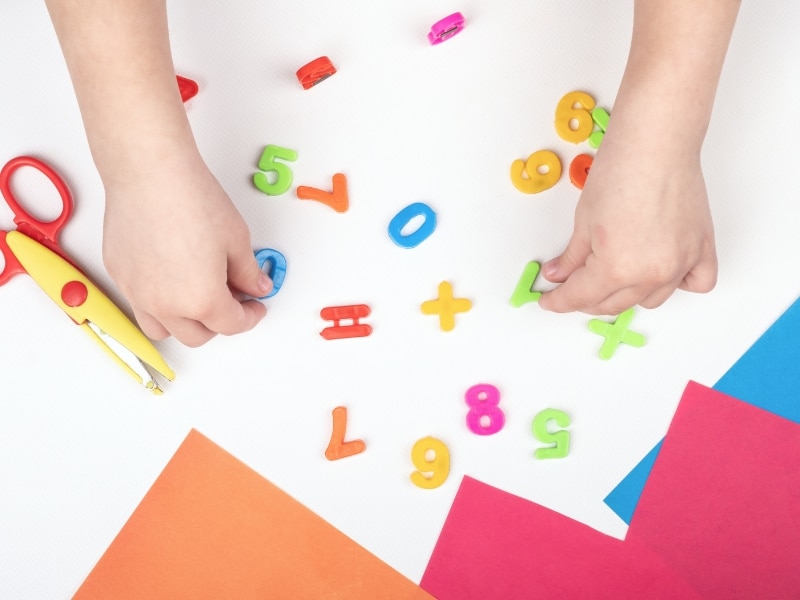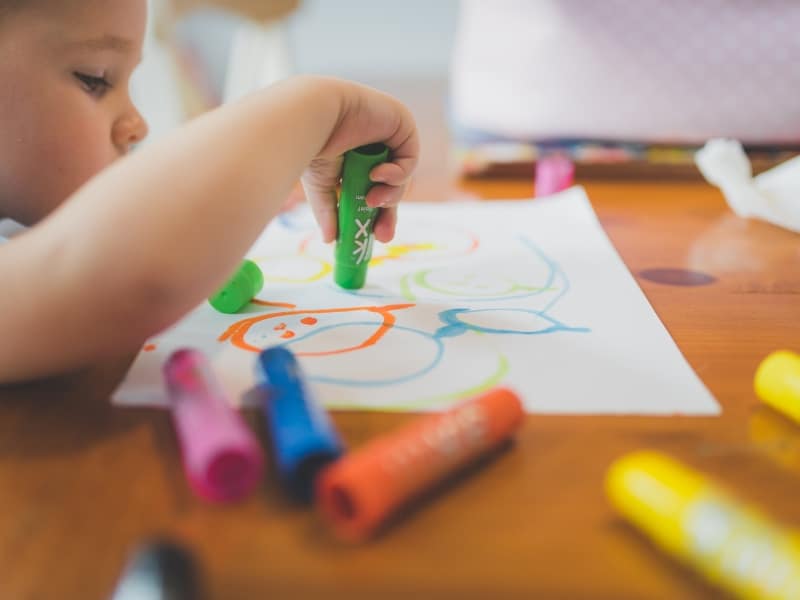How Preschool Readiness Activities Support Learning

Starting preschool can be a big deal for both kids and parents. The proper preparation makes the transition smoother and helps your child thrive. That’s where preschool readiness activities come in. These targeted tasks help children develop the emotional, social, and cognitive tools they need to succeed in structured learning environments. This article will explore why some children struggle to start preschool, the long-term impact of missing key milestones, and the practical activities you can use to set your child up for success.
Why do some children struggle with starting preschool?
You might notice that not all children warm up to preschool straight away. That’s normal, but some struggle more than others.
Kids with little structure or group interaction at home often find preschool overwhelming. Shifting from a familiar, one-on-one setting to a busy classroom can spark anxiety, tantrums, or clinginess. It’s a lot for their little brains to process, especially when they don’t yet understand the rhythm of a school day. Common issues faced by kids include:
- Trouble following group instructions
- Separation anxiety when leaving parents
- Difficulty adjusting to fixed routines
- Lack of confidence in group settings
- Limited exposure to peers or structured play
Without early exposure to group play or scheduled activities, the adjustment can feel like a big leap. But don’t worry—routine, encouragement, and practice at home can help ease the transition.
What happens if children miss early learning milestones?
When milestones are delayed, it doesn’t just affect playtime—it can hinder classroom readiness and slow academic development. These benchmarks create the foundation for learning literacy, communication, and self-regulation.
Imagine a child who hasn’t yet practised sharing. They may struggle with classroom cooperation, leading to conflict and isolation. Or a child who can’t sit still during story time may fall behind in early literacy. Here’s a breakdown of typical milestones and what’s at stake:
| Milestone | Typical Age | Concern If Missed |
| Naming colours/shapes | 3–4 years | Delayed cognitive skills |
| Speaking in sentences | 3–4 years | Speech or comprehension challenges |
| Drawing simple shapes | 4 years | Weak fine motor skills |
| Independent toileting | 3–4 years | Classroom management difficulties |
Without timely support, children may become frustrated, which can affect their confidence and interest in learning. Fortunately, these skills can be nurtured with targeted activities and patience.
How can poor preschool preparation affect long-term learning?
Children who walk into a classroom unprepared often feel overwhelmed or insecure. This initial discomfort can trigger anxiety, behaviour issues, or reluctance to participate—outcomes that may shape how they perceive education for years to come. Long-term effects may include:
- Low self-esteem and avoidance of new tasks
- Trouble forming friendships or working in groups
- Falling behind in literacy, numeracy, or language skills
- Lack of engagement and emotional regulation challenges

One way to address this gap is to focus on how preschool readiness activities help build daily skills. These activities develop routines, vocabulary, motor skills, and social awareness in fun, interactive ways. They also help children feel more in control when encountering unfamiliar classroom settings.
The earlier you start, the smoother their transition to formal learning becomes.
What preschool readiness activities can parents try at home?
You don’t need expensive learning kits or complicated lesson plans. With a bit of creativity, everyday moments become learning opportunities. What matters most is consistency, engagement, and having a bit of fun along the way. Try these home-based activities:
- Role play: Take turns being the teacher and student to build comfort with classroom dynamics
- Name games: Practice recognising, spelling, and writing their name in fun formats like magnets or sand
- Story time: Read daily and ask open-ended questions to boost comprehension
- Clean-up races: Teach responsibility by timing how quickly toys are packed away
- Snack sorting: Use mealtimes to practise counting, colours, and categorisation
Keen to go a step further? These activities that build early learning skills offer more structured play ideas to support both school readiness and developmental milestones.
How do preschool readiness activities build key skills?
Readiness tasks aren’t just about keeping your little one busy—they’re about forming habits, building skills, and boosting independence. These activities help children develop the qualities teachers look for on day one. Preschool readiness activities promote:
- Cognitive growth: Matching games, puzzles, and memory challenges boost early thinking skills
- Social interaction: Group activities encourage cooperation and conflict resolution
- Motor control: Drawing, colouring, and block stacking build fine motor strength
- Emotional regulation: Routine-based activities like morning checklists reduce anxiety
Beyond the physical or cognitive outcomes, these activities also create a sense of achievement and autonomy. Children who feel capable of doing small tasks are more likely to tackle bigger challenges with enthusiasm.
For more real-world strategies, see how toddlers adjust to new school settings and why tailoring activities to your child’s temperament is a game-changer.
Which preschool readiness activities build core skills?
Not all activities are created equal. Some offer multiple benefits, simultaneously helping your child grow across cognitive, social, and emotional areas. Multifaceted activities worth trying include:
- Obstacle courses: Boost gross motor skills, planning, and resilience
- Sorting tasks: Teach early maths and organisation
- Memory card games: Improve focus and short-term memory
- Art projects: Build fine motor coordination, imagination, and sequencing

When practised regularly, these activities support children in managing classroom expectations and build a strong learning foundation. You can explore educational resources to use at home for early childhood, for more structured options that align with everyday routines.
How do fine motor games prepare kids for school?
Fine motor development is key for success in early education. It impacts how a child holds a pencil, uses scissors, fastens clothing, and manipulates tools. Helpful fine motor games include:
- Beading necklaces or threading pasta
- Cutting along patterns using child-safe scissors
- Building with blocks or LEGO
- Drawing shapes with chalk on concrete
- Playing with tweezers or tongs to pick up small items
These tasks build the hand strength and coordination needed for writing and self-care functions at school. Plus, they’re fun and easy to fit into daily play.
Why are daily routines crucial for early education success?
Routine is the unsung hero of early education. Kids crave consistency—it helps them feel safe, reduces uncertainty, and fosters independence. A consistent routine supports your child by:
- Easing transitions between activities
- Reinforcing structure and discipline
- Teaching time awareness and patience
- Helping children prepare mentally for what’s next
Daily routines, from brushing teeth to packing their bags, teach children that life runs on rhythms. These lessons stick and translate directly to school routines like lining up, packing up, and following instructions.
Conclusion
Starting preschool is a significant milestone, but it doesn’t need to be a rocky road. With the right preschool readiness activities, your child can leap into learning with confidence, curiosity, and joy. Every game, every routine, and every shared moment of preparation makes a lasting difference. If you’re unsure where to begin or want help personalising your approach, connect with Innocent Minds for tailored advice.
